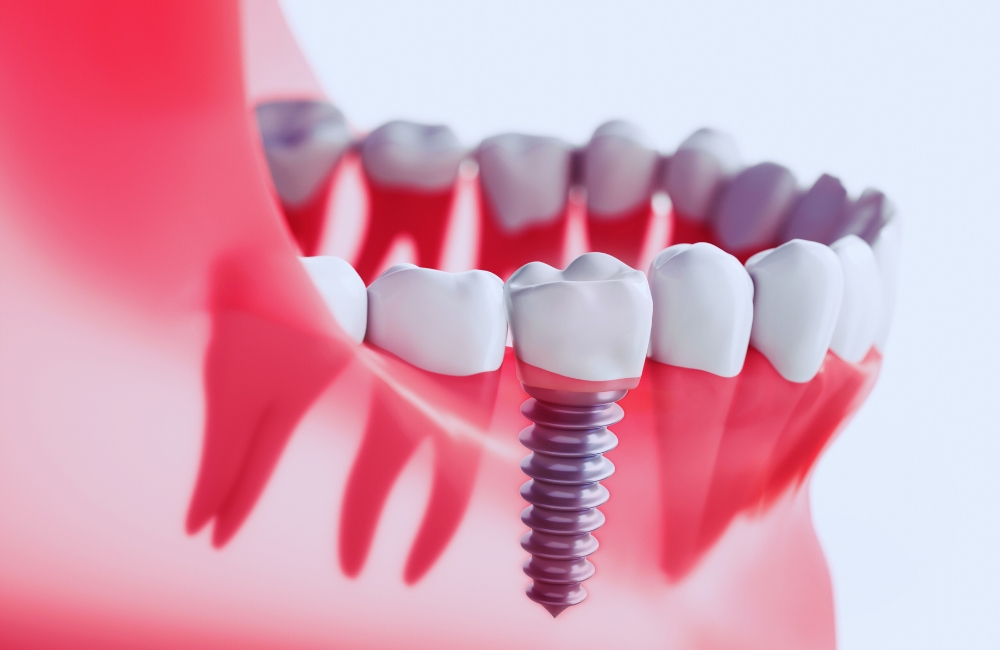How Long Should You Rest After A Dental Implant?

Dental implants are a reliable solution for replacing missing teeth, offering functionality and aesthetic appeal. Millions have opted for it to restore their smiles. It’s your turn now. Go for a dental implant! It’s safe and effective.However, one common concern among patients is the recovery process. “How long should you rest after a dental implant?” is a frequently asked.
This article will guide you through the expected recovery timeline and healing phases and provide practical tips for a smooth recovery.
Understanding The Dental Implant Procedure
A dental implant is a titanium post surgically placed into the jawbone to replace a missing tooth root.
Over time, the bone fuses with the implant in osseointegration, ensuring stability for the artificial tooth. The procedure involves several steps: initial consultation, implant placement, and crown attachment.
Factors influencing recovery time include the complexity of the surgery, the number of implants, and the need for bone grafts. For instance, patients opting for a dental implant in Minneapolis, MN, may experience varying recovery timelines based on these factors.
Immediate Post-Op Recovery: First 24–72 Hours
Rest is paramount during the first 24 to 72 hours following the implant surgery. Patients can expect mild discomfort, swelling, and slight bleeding.
- Taking 1–2 days off work is advisable to allow the body to initiate the healing process.
- Physical exertion should be avoided to prevent complications.
- Applying ice packs to the face can help reduce swelling, and prescribed medications should be taken as directed to manage pain and prevent infection.
Short-Term Healing: First Week
The first week post-surgery is crucial for initial healing. Swelling and bruising should begin to subside, and discomfort may decrease.
Patients can gradually resume normal activities, but avoiding strenuous exercises and heavy lifting is essential.
Maintaining a soft-food diet and practicing good oral hygiene are vital during this phase. Regular follow-up visits to your restorative dentist ensure that the implant is healing correctly and that any concerns are addressed promptly.
Long-Term Recovery: Weeks To Months
The osseointegration phase, where the implant fuses with the jawbone, typically spans 6 to 12 weeks.
While complete rest isn’t necessary during this period, certain lifestyle modifications are essential.
Avoiding hard or crunchy foods and refraining from smoking can significantly impact the success of the implant.
Regular check-ups with your restorative dentist are crucial to monitor progress and address issues early.
Factors That Affect Recovery Time
Personal Health
Personal health plays a major role in healing. Conditions such as diabetes, autoimmune disorders, or poor circulation can slow down tissue regeneration.
Smoking also significantly hinders recovery by reducing blood flow and increasing the risk of infection. Patients with these conditions should work closely with their restorative dentist to manage their health before and after the procedure.
Surgical Complexity
Another key factor is that the healing period will naturally take longer if your implant procedure involves additional treatments like bone grafting or sinus lifts. These procedures add complexity and require more time for tissues to recover and stabilize.
Post-Operative Care Compliance
Care directly affects healing outcomes. Following your dentist’s instructions on hygiene, diet, medication, and activity levels can significantly reduce complications and speed up recovery.
By understanding and addressing these factors, patients can actively support their recovery and improve the long-term success of their dental implants.
Tips For A Smooth Recovery
To facilitate optimal healing after your dental implant surgery, it’s essential to follow a few key guidelines.
Post-Operative Instructions
Start by adhering strictly to your restorative dentist’s post-operative instructions. These are tailored to your specific needs and help minimize the risk of complications. Your dentist may advise on medications, cleaning routines, and follow-up visits.
Oral Hygiene
Maintaining proper oral hygiene is also crucial. In the first few days, gently rinse your mouth with salt water or an antiseptic solution, avoiding the surgical site. You can gradually resume brushing and flossing around the area as healing progresses.
Diet
Your diet matters too. Stick to soft, nutritious foods such as yogurt, mashed potatoes, and smoothies. Avoid anything complicated, crunchy, or spicy that could irritate the area or dislodge the implant.
Avoid smoking and alcohol, as both slow down healing and increase the risk of infection.
Finally, monitor your mouth for swelling, pain, or unusual discharge. If anything seems off, contact your restorative dentist promptly.
In summary, after a dental implant, it’s crucial to rest for the first 1–2 days, gradually resume activities within a week, and allow several months for complete healing.
Adhering to your restorative dentist’s instructions and maintaining a healthy lifestyle can significantly impact recovery outcomes.
If you’re considering a dental implant, our qualified restorative dentist to discuss your options and plan for a successful recovery.